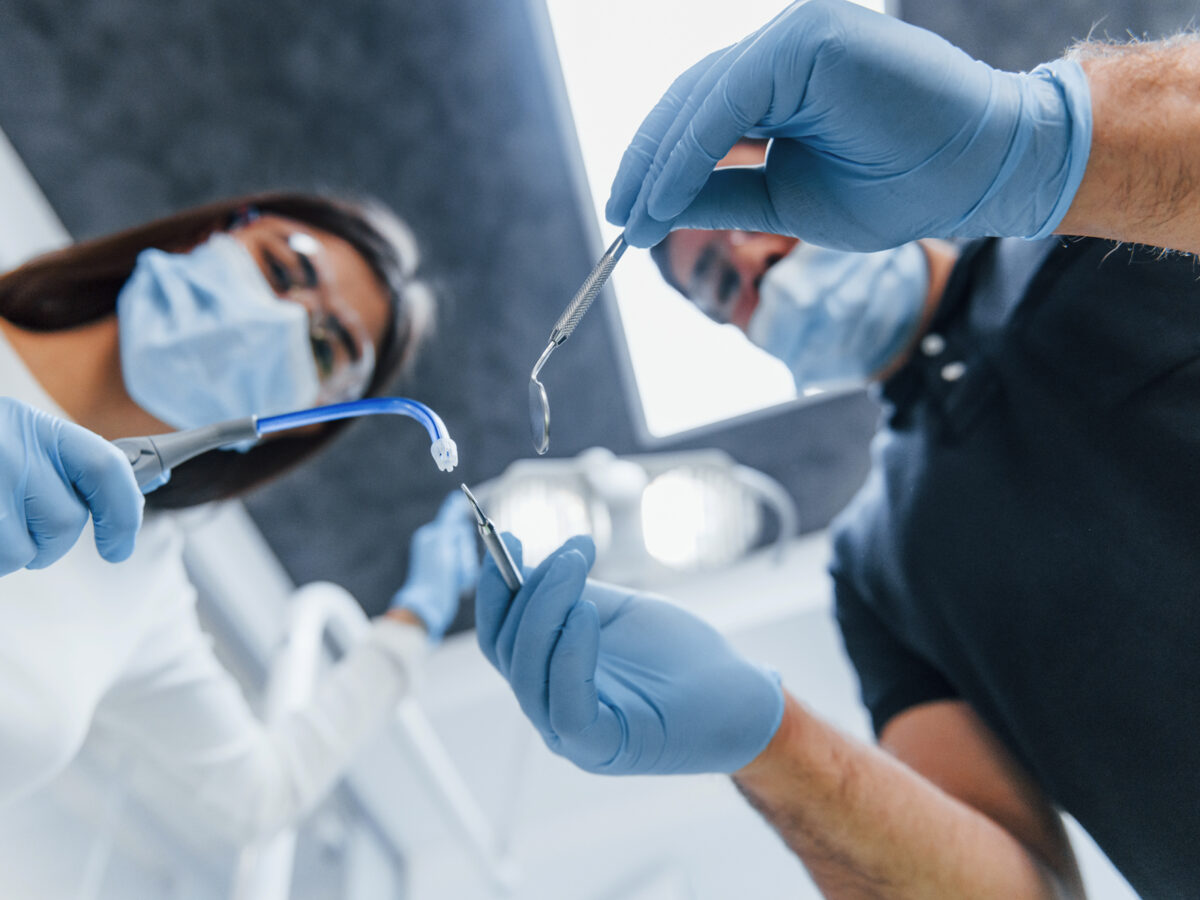Blog
Dental hygiene tips for healthy teeth & gums

Why You Should Consider IV Sedation For Dental Treatment
Frequent dental anxiety prevents many individuals from seeking necessary dental care. Even routine dental examinations can induce dread and discomfort in some individuals. However, dental health is essential for overall health, and ignoring it can contribute to more severe health issues over time.
If you avoid dental treatment due to anxiety or dread, intravenous sedation may be the answer you’ve been looking for. This article will discuss the IV Sedation benefits for dental treatment and why it should be considered.
What is Intravenous Sedation?
Intravenous (IV) sedation, also known as “twilight sedation” or “conscious sedation,” is the administration of sedatives directly into the circulation of a patient via an IV line. This technique is frequently employed in dental and medical procedures to induce profound relaxation and calm, causing the patient to feel tired and less aware of their surroundings.
IV sedation is distinct from general anesthesia, which renders the patient incapacitated. With IV sedation, you remain conscious and can respond to the dentist’s verbal instructions, but you are in extreme relaxation and typically have little memory of the procedure afterward.
The Advantages of IV Sedation Benefits
- Increased Relaxation: Even routine dental procedures can be unpleasant due to the noise, sensations, and closeness of the dental instruments. Because you will be less aware of what is occurring, IV sedation ensures your relaxation and comfort throughout the procedure.
- Pain Treatment: While IV sedation cannot supplant local anesthesia for pain management, it can be used in conjunction with it. The sedative medications reduce pain and distress perception, allowing the dentist to use less local anesthesia. This can be especially helpful for those dreading needles and injections.
- Enhanced Collaboration: Extraordinarily anxious or fearful patients may have difficulty cooperating during dental procedures. Relaxing patients with IV sedation makes it simpler for the dentist to administer the necessary treatment. It also enables the dentist to operate more efficiently, reducing the time spent in the dental chair.
- Memory Elimination: As a side effect of IV anesthesia, patients frequently have little to no recollection of the procedure. This can be a significant benefit for individuals who fear retaining the details of their dental treatment or who have had negative experiences in the past.
- Rapid Onset and Recovery: Typically, the IV sedative takes effect rapidly, allowing the patient to reach a relaxed state within minutes. Upon completion of the procedure, the effects of sedation wear off relatively quickly, and patients can typically depart the dental office shortly after that.
The IV Sedation Method
The following is a summary of the IV sedation procedure:
- Before the dental procedure, you will meet with the dentist or dental specialist for a consultation. During this consultation, you will be able to discuss your concerns and determine whether intravenous sedation is suitable for your requirements.
- A licensed professional, typically a certified registered nurse anesthetist (CRNA) or anesthesiologist, will administer the sedative medication through an IV line on the day of the procedure. You will be monitored continuously throughout the procedure.
- The sedative has a rapid onset of action and induces profound relaxation and diminished awareness. After the procedure, you may only recall a little, if anything.
- The dental procedure is conducted while the patient is sedated, allowing the dentist to work more efficiently and comfortably.
- After the procedure, the effects of the sedative begin to diminish. Someone should accompany you to your appointment to ensure your safety and help you return home after your brief recovery period.
Is IV Sedation Safe?
When administered by trained and experienced professionals, IV sedation is typically considered secure. To ensure the patient’s safety, meticulous monitoring of vital signs is required throughout the procedure.
However, it is essential to provide your dentist with a thorough medical history and to inform them of any medications or dietary supplements you are taking to prevent potential drug interactions.
Conclusion
Individuals who experience dental anxiety or require extensive dental procedures may take advantage of various IV Sedation benefits. It provides multiple advantages, including reduced anxiety, comfort, and cooperation.
Whether you have a strong gag reflex, a fear of dental procedures, or want a more comfortable and stress-free experience at the dentist’s office, IV anesthesia can make your dental treatment more manageable and help you maintain your oral health without stress or anxiety.


